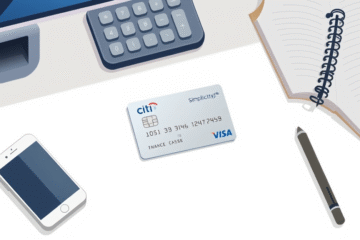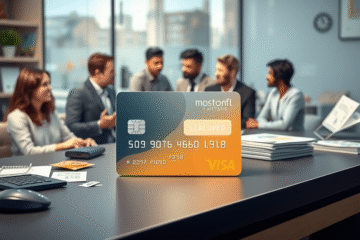Is a Credit Card a Smart Choice or a Debt Trap
Credit cards offer both opportunities and challenges in today’s financial landscape.
In this article, we will explore the benefits of using credit cards wisely, such as improving cash flow and building credit history.
Conversely, we will also discuss the risks associated with mismanagement, including high interest rates and accumulating debt.
Understanding these factors is crucial for responsible credit card use, ensuring you can enjoy the benefits while avoiding the pitfalls that can lead to financial stress.
Join us as we delve deeper into the world of credit cards and provide strategies for navigating this financial tool effectively.
Credit Cards in Modern Life
Credit cards have seamlessly integrated into modern life, serving as a critical component of personal finance.
Their widespread acceptance facilitates countless transactions, enabling users to purchase with ease wherever they go.
Their appeal lies in the convenience and security they offer, along with the potential for rewards such as cash back or travel points.
Additionally, they provide an opportunity to build a solid credit history, which is vital for future financial endeavors.
With these advantages, credit cards have become indispensable in the financial toolkit of many individuals, simplifying transactions and enhancing purchasing power.
However, amidst these benefits lies the central dilemma faced by consumers: the fine line between using credit cards as valuable tools and falling into debt traps.
The allure of easy spending often leads individuals astray, causing them to overlook the potential pitfalls such as high interest rates and accumulating debt.
The temptation to spend beyond one’s means is a constant threat.
Therefore, the balance of personal responsibility is crucial, as only through disciplined management can one harness the true power of credit cards without succumbing to financial stress.
A Closer Look at the Benefits
Many consumers find credit cards indispensable for the convenience they offer and the multitude of financial advantages associated with them.
From managing expenses to building credit, these pieces of plastic can be powerful tools in personal finance.
- Cash-back rewards on everyday purchases create incentives for strategic spending. According to resources like the Discover Card Benefits, earning while spending is a significant advantage.
- Fraud protection safeguards consumers against unauthorized charges, offering peace of mind with each transaction.
- Utilizing credit cards responsibly can lead to substantial credit score improvements, which are beneficial for obtaining future loans or favorable interest rates.
Leveraging these benefits requires strategic thinking and cautious usage.
By consistently paying the full amount on your statement each month, you avoid interest and keep debt under control.
Adopting these practices not only enhances your financial security but also maximizes the value you gain from your credit cards.
This balance of benefits and smart usage is what makes credit cards an essential component of effective personal finance management.
Hidden Dangers to Watch
Credit cards may offer convenience and financial flexibility, but they harbor hidden risks that can quickly spiral into costly debt and long-term financial stress if mismanaged.
Overspending is one of the significant traps, as the ease and convenience of using a credit card can lead many to exceed their budgets.
This unchecked behavior often results in accruing high balances that become increasingly difficult to pay off over time.
Compounding interest further exacerbates this issue.
Credit card interest compounds daily, so if the full balance isn’t paid each month, the amount owed quickly snowballs, escalating the debt burden.
Consequently, this leads to a cycle of paying more in interest over time than the original amount spent.
Key traps to watch out for include:
- High-interest debt
- Penalties from late payments
- Temptation to overspend
Another crucial factor impacted by credit card misuse is your credit score.
Missing payments or maintaining a large balance relative to your credit limit can harm your credit score, affecting your ability to secure future financial products like loans or mortgages at favorable rates.
To inform yourself further on these dangers, consider the insights from the Georgia Student Finance Commission’s guide on credit card dangers.
“
Deciding If a Card Fits Your Life
Evaluating your spending discipline is crucial before getting a credit card, as your habits will determine how well you manage this financial tool.
Begin by assessing if you can control impulsive purchases, a critical factor in avoiding debt.
Next, consider the various fees associated with credit cards.
Not only are there annual fees, but late-payment and over-the-limit fees can quickly escalate costs if you’re not careful.
Understanding how these fees play into your budget can inform whether a particular card fits within your financial means.
Interest rates also demand attention as they greatly affect the cost of carrying a balance.
For more on how these rates impact you, visit the Understanding Credit Card Interest Rates page.
Only select a card you’re confident you can manage responsibly.
Moreover, ensure you have a sufficient emergency fund.
This financial cushion prevents you from relying on credit in urgent situations.
Honest self-assessment will help determine your readiness for a credit card.
Here’s a brief table for further reflection:
| Consideration | Impact | Answer |
|---|---|---|
| Can I pay in full monthly? | Prevents interest | Yes / No |
| Do I understand the fees? | Controls costs | Yes / No |
| Is my emergency fund ready? | Reduces reliance | Yes / No |
By reflecting on these aspects, you’ll make informed decisions aligned with your financial landscape.
Habits for Safe and Smart Use
To effectively manage credit cards responsibly, prioritize making timely payments every month.
This practice helps you maintain a healthy credit score and avoids costly interest charges.
In addition, aim to pay more than the minimum balance whenever possible to reduce your debt faster, ultimately allowing you to never borrow more than you can repay.
Understand your card’s terms by familiarizing yourself with its fees and the associated interest rates, as this knowledge empowers informed spending decisions.
You can learn more about these critical terms through resources like [Capital One’s guide on responsible credit card use](https://www.capitalone.com/learn-grow/money-management/tips-using-credit-responsibly/alt=”Capital One’s guide on responsible credit card use”).
Another key strategy is monitoring your spending closely to stay within a realistic budget.
Regularly review your transactions and keep your credit utilization low, ideally below 30%, which also positively influences your credit rating.
Using digital tools from providers such as [American Express](https://www.americanexpress.com/en-us/credit-cards/credit-intel/credit-card-management/alt=”American Express credit card management”) can assist in streamlining this process.
It’s also wise to take advantage of rewards programs responsibly, ensuring they align with your spending habits without encouraging unnecessary purchases.
By maintaining disciplined habits, your credit card becomes an invaluable tool that enhances your financial flexibility while you steer clear of debt pitfalls.
Credit cards can be a double-edged sword; when used responsibly, they enhance financial flexibility, but carelessness can lead to debt.
By understanding the associated risks and employing effective strategies, you can harness the power of credit cards while safeguarding your financial well-being.



0 Comments